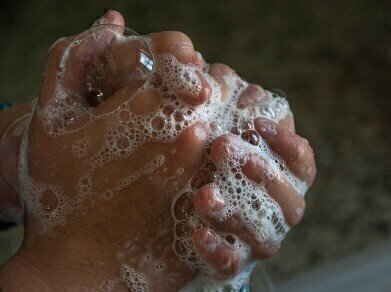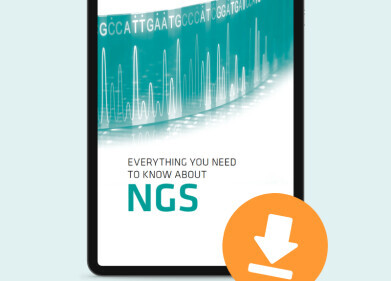Laboratory Products
Coronavirus: Why is Handwashing So Important?
Mar 31 2020
In the global fight to flatten the COVID-19 curve one preventative measure is being stressed more than ever – handwashing. To slow a viral pandemic of any kind, experts assert that a focus on handwashing is essential, particularly at major airports. According to researchers at the Massachusetts Institute of Technology, improving handwashing rates at just 10 major air travel hubs could drastically reduce the spread of infectious diseases such as COVID-19.
The findings of the study were published in the journal Risk Analysis just before the initial coronavirus outbreak in Wuhan. While the study focussed on infectious diseases such as the flu, the authors say the findings are more relevant than ever in the face of the global COVID-19 pandemic.
Just 20% of airport travellers practice good hand hygiene
To create the estimates, the authors used advanced epidemiological modelling technology and data-based simulations accounting for factors such as flight duration, distance, airport connections, line wait times and typical rates of person-to-person interactions. The models were based on previous research from the American Society for Microbiology suggesting that just 20% of airport travellers have clean hands. The remaining 80% are continually touching and potentially contaminating surfaces in the airport, which quickly spreads infectious diseases such as COVID-19.
"Seventy percent of the people who go to the toilet wash their hands afterwards," says Professor Christos Nicolaides PhD '14 of the University of Cyprus, one of the authors of the study. "The other 30 percent don't. And of those that do, only 50 percent do it right."
Handwashing: 101
Nicolaides says that while a quick rinse is often considered adequate, to properly eliminate germs hands need to be washed with soap and water for 15 to 20 seconds. For diseases such as COVID-19 this is essential as coronavirus particles are enveloped in a fatty outer later made up of lipid molecules that disintegrate when exposed to soap. So, while handwashing doesn't necessarily kill germs it does remove them from then hands and is an effective way of preventing the spread. If the rate of airport travellers with clean hands increased from 20% to 60% the study estimates global disease spread could be reduced by up to 70%. If initiatives to encourage clean hands were introduced in just 10 of the world's busiest airports, the team assert the spread of diseases such as coronavirus could be reduced by 37%.
"Eliciting an increase in hand-hygiene is a challenge," says Nicolaides. "But new approaches in education, awareness, and social-media nudges have proven to be effective in hand-washing engagement."
While other measures such as the use of surgical face masks are popular, the findings are in line with recommendations from leading organisations such as WHO, which cites hand hygiene as the first line of defence against infectious diseases.
For more up-to-the-minute information on how scientists are working to flatten the curve, read 'Ways to tackle the spread of coronavirus using viricidal surface decontamination.
Digital Edition
Lab Asia 31.2 April 2024
April 2024
In This Edition Chromatography Articles - Approaches to troubleshooting an SPE method for the analysis of oligonucleotides (pt i) - High-precision liquid flow processes demand full fluidic c...
View all digital editions
Events
Apr 22 2024 Marrakech, Morroco
Making Pharmaceuticals Exhibition & Conference
Apr 23 2024 Coventry, UK
Apr 23 2024 Kintex, South Korea
Apr 23 2024 Seoul, South Korea
Apr 24 2024 Jakarta, Indonesia

.jpg)






.jpg)









